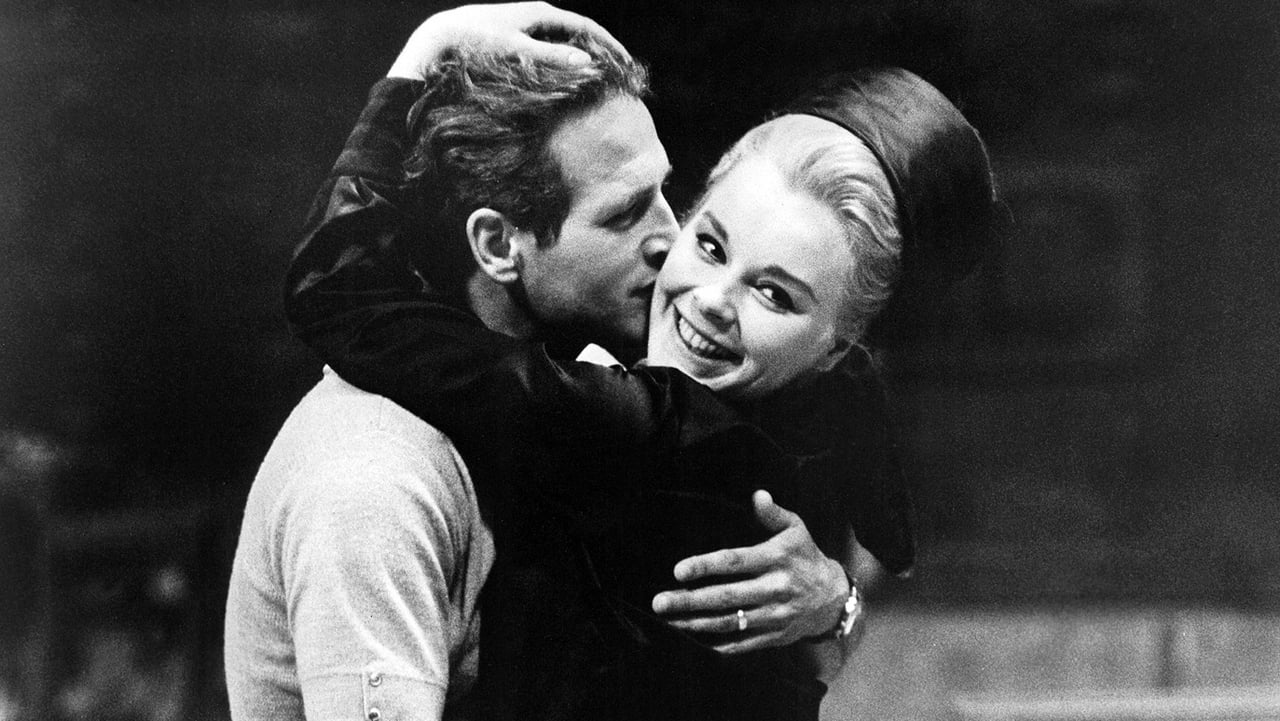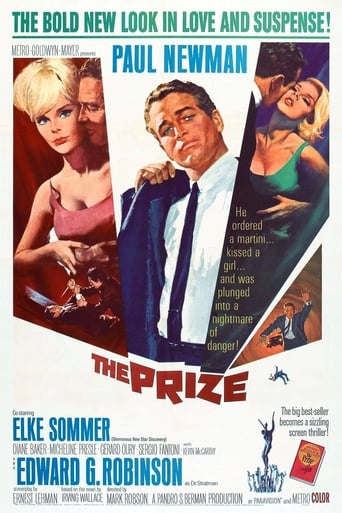Inclubabu
Plot so thin, it passes unnoticed.
Beystiman
It's fun, it's light, [but] it has a hard time when its tries to get heavy.
FirstWitch
A movie that not only functions as a solid scarefest but a razor-sharp satire.
Lachlan Coulson
This is a gorgeous movie made by a gorgeous spirit.
SnoopyStyle
The Nobel prize in literature is being awarded to the brash drunken womanizing author Andrew Craig (Paul Newman). The Swedish Foreign Ministry assigns Inger Lisa Andersson (Elke Sommer) as his minder. Dr. Max Stratman (Edward G. Robinson) is another winner coming to Stockholm with his young niece Emily (Diane Baker). He's got a rendezvous with mysterious Hans Eckhart. Dr. John Garrett (Kevin McCarthy) is forced to share his prize with his competitor Dr. Carlo Farelli (Sergio Fantoni). Dr. Claude Marceau (Gérard Oury) and his disgruntled wife Dr. Denise Marceau (Micheline Presle) are awarded the prize for chemistry. He's brought along his mistress. Craig meets Stratman in a very knowing and friendly manner. Eckhart wants Stratman to defect. When he refuses, Stratman is kidnapped. In the second meeting, Craig reveals that he's been making his living writing mystery novels under a pseudonym and Stratman doesn't seem to be the same person. Craig gets a mysterious call and finds a dead body. However the body disappears and nobody believes him.This starts like a sex comedy. Newman comes in after 15 minutes and the tone is extremely light. Then the mood becomes more serious with the kidnapping. I would prefer the mood stay serious from the beginning. The movie oscillates between a light comedy and a dark thriller. Newman delivers some fun comedy. The character should be more serious. The movie works much better as a paranoia filled Hitchcockian thriller. I would also rather have the mystery be kept a secret. There is no room for any twists. The movie reveals all the good stuff right away. This movie really struggles with dueling tones.
moonspinner55
Ernest Lehman, the writer of Alfred Hitchcock's "North By Northwest", was a terrific choice to adapt this Irving Wallace suspense tale...and though director Mark Robson may never be confused with Hitchcock, the overall look, pacing, and feel of "The Prize" are quite similar to "Northwest". Paul Newman plays a hard-drinking heel, a once-promising but now cynical, womanizing writer who has turned to detective stories to pay the bills; he nevertheless has been chosen as one of the recipients of the Nobel Prize for his literature, and sobers up just in time for some exciting adventures in Stockholm. He suspects that one of the other Prize winners is a ringer, with no one else on-screen in his corner (just Foreign Ministry worker Elke Sommer in his arms!). A handsome piece of work, the film does have minor deficiencies: the opening introductions are amusing but a bit pedantic, while an overlong sequence with Newman escaping killers by hiding out at a nudist convention lands with a thud (Cary Grant may have been able to pull this off, but Newman is still too callow). Supporting cast is first-rate, though Lehman tries to have it both ways with Diane Baker's mysterious character, and one ends up not understanding much about her actions or motivations. Newman, shuffling along with a bemused smile, has some nice moments with Sommer, while Edward G. Robinson does a fantastic actors' turn playing two sides of the coin. **1/2 from ****
Per Perald
To avoid misunderstandings; amongst the several "writers privileges" in this movie (such as being able to hit the sea from Katarinahissen), the omission of the peace prize winner is actually accurate, as this prize is awarded in Oslo, in neighboring Norway. This has always been the case. Otherwise one might say that the plot seems a little "childish" today, except maybe among the "conspirationists" of our time. It is fun however, that the egalitarian social-democracy of Sweden in 1963 still had a nobility (and still does), as only Finland, Luxembourg, Netherlands, Belgium and the UK besides Sweden has a nobility de jure. Count Jakobsson is more than unlikely though, he should have been named Count af Jacobsfält or something.
David
I absolutely enjoyed this 2+ hour-long movie, and the fact that, as others have mentioned, it's inspired by Hitchcock doesn't change anything.I liked Newman's character. A man who is more interested in women and drink rather than the Nobel Prize, who has a devil-may-care attitude towards everything, decides to endanger his own life when he realizes his colleague is in trouble. Maybe he does it partially because he is bored and partially because he has been writing detective stories for the past few years, but it is interesting to watch his behavior anyway.Although the plot is pretty simple, there is something that gets you hooked from the very beginning and doesn't let you go until the very last phrase. The film is very interesting, and the supporting characters play a significant role here.

